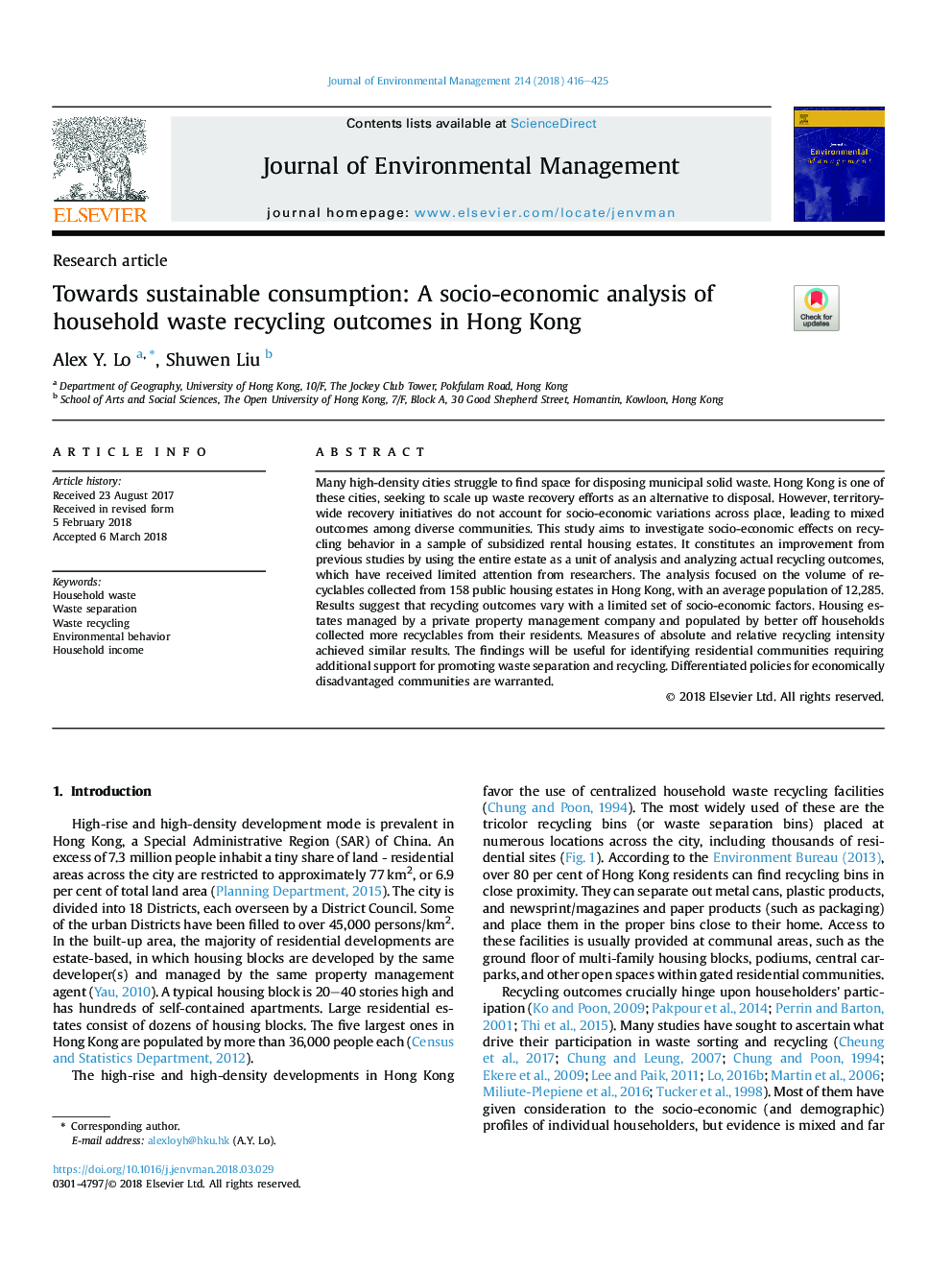| Article ID | Journal | Published Year | Pages | File Type |
|---|---|---|---|---|
| 7477905 | Journal of Environmental Management | 2018 | 10 Pages |
Abstract
Many high-density cities struggle to find space for disposing municipal solid waste. Hong Kong is one of these cities, seeking to scale up waste recovery efforts as an alternative to disposal. However, territory-wide recovery initiatives do not account for socio-economic variations across place, leading to mixed outcomes among diverse communities. This study aims to investigate socio-economic effects on recycling behavior in a sample of subsidized rental housing estates. It constitutes an improvement from previous studies by using the entire estate as a unit of analysis and analyzing actual recycling outcomes, which have received limited attention from researchers. The analysis focused on the volume of recyclables collected from 158 public housing estates in Hong Kong, with an average population of 12,285. Results suggest that recycling outcomes vary with a limited set of socio-economic factors. Housing estates managed by a private property management company and populated by better off households collected more recyclables from their residents. Measures of absolute and relative recycling intensity achieved similar results. The findings will be useful for identifying residential communities requiring additional support for promoting waste separation and recycling. Differentiated policies for economically disadvantaged communities are warranted.
Related Topics
Physical Sciences and Engineering
Energy
Renewable Energy, Sustainability and the Environment
Authors
Alex Y. Lo, Shuwen Liu,
